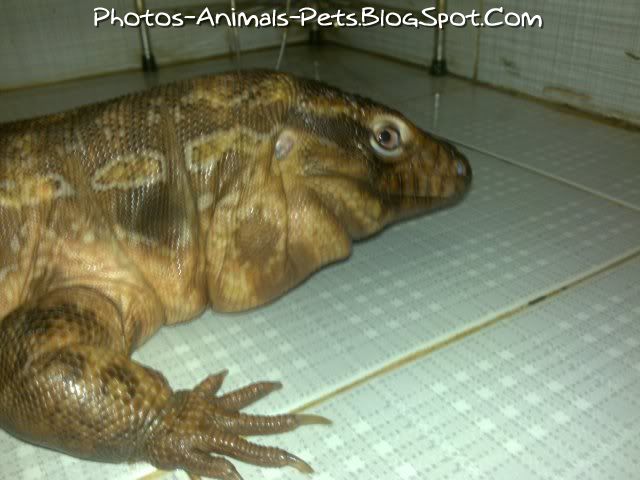 When we consider reptiles, one in every of the primary things that come to thoughts is their chilly-blooded nature. However, latest research has shown that reptiles are usually not as cold-blooded as we as soon as believed. In truth, many reptiles at the moment are believed to be heat-blooded to some extent, opposite to standard belief.
When we consider reptiles, one in every of the primary things that come to thoughts is their chilly-blooded nature. However, latest research has shown that reptiles are usually not as cold-blooded as we as soon as believed. In truth, many reptiles at the moment are believed to be heat-blooded to some extent, opposite to standard belief.
Opposite to fashionable perception, not all reptiles are cold-blooded. While many reptiles regulate their body temperature by basking in the solar or searching for out shade, some species have been found to generate their own physique heat through metabolic processes. This potential to regulate their body temperature internally permits these reptiles to keep up a comparatively stable physique temperature, very like heat-blooded animals.
One instance of a heat-blooded petsmart reptile cages is the leatherback sea turtle. These massive creatures can maintain a physique temperature larger than that of the surrounding water, allowing them to thrive in colder ocean environments. Scientists consider that leatherback sea turtles have a high metabolic rate and are capable of generate heat internally, similar to warm-blooded mammals.
One other example of a heat-blooded reptile pets for beginners is the black mamba, a highly venomous snake present in Africa. Research have shown that black mambas are capable of regulating their body temperature via metabolic processes, allowing them to keep up a relatively stable inner temperature even in fluctuating environmental situations. This ability to generate heat internally has helped black mambas survive in a wide range of habitats across Africa.
In addition to the leatherback sea turtle and the black mamba, there are a lot of different reptiles that exhibit heat-blooded traits. For instance, some species of monitor lizards have been discovered to have larger body temperatures than their atmosphere, suggesting that they may even be partially heat-blooded. This means to regulate physique temperature internally has allowed these pet reptiles diet to thrive in a spread of habitats and climates.
Whereas not all reptiles are warm-blooded, the rising body of analysis on this subject has challenged our conventional understanding of those fascinating animals. By shedding mild on the heat-blooded nature of sure reptiles, scientists are gaining a better understanding of the diversity and complexity of reptilian biology.
 In conclusion, whereas reptiles are sometimes thought of as cold-blooded creatures, many species exhibit warm-blooded traits. From the leatherback sea turtle to the black mamba, reptiles have been found to generate heat internally and regulate their body temperature in methods previously thought impossible. This newfound understanding of reptilian biology highlights the incredible adaptability of these creatures and underscores the importance of continued research into their distinctive physiological traits.
In conclusion, whereas reptiles are sometimes thought of as cold-blooded creatures, many species exhibit warm-blooded traits. From the leatherback sea turtle to the black mamba, reptiles have been found to generate heat internally and regulate their body temperature in methods previously thought impossible. This newfound understanding of reptilian biology highlights the incredible adaptability of these creatures and underscores the importance of continued research into their distinctive physiological traits.

No responses yet